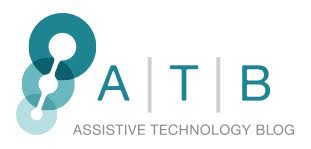Toronto Theatre Offers AR (Augmented Reality) Glasses for Deaf Audience Accessibility
A Toronto theatre company called Pleiades Theatre is making big efforts to make their shows more accessible for Deaf audience members. They’re doing this by offering augmented reality (AR) glasses for every performance of their new production, Tyson’s Song, which runs for four weeks at Factory Theatre. This is the first time a Toronto theatre has provided AR glasses at every show. Usually, Deaf access in Toronto theatre involves ASL interpretation at some performances, but this new technology allows Pleiades Theatre to offer ASL interpretation at every single show during their run. WIth these glasses, deaf audience members are able to enjoy the action on stage without having to look in a completely different direction where the interpreter is – a notable step in accessibility for theatre audiences.
The AR glasses provide a high-quality display and ergonomic design, with five pairs available at each performance, made possible through funding from the Government of Canada’s Community Services Recovery Fund.
Tyson’s Song, written by Peter N. Bailey and directed by Ash Knight, is about two Black men, Bryan and Tyson, who are best friends. It explores themes of Black masculinity and mental health as the men face unexpected challenges during their last night out together. The production runs from April 24 to May 19, with pay-what-you-choose tickets starting at $5, available at PleiadesTheatre.org or FactoryTheatre.ca. Audience members interested in using the AR glasses can request them when booking tickets, and they’ll be provided on a first-come, first-served basis.
Budget-Friendly Accessibility Suggestions for Deaf Theatregoers
What Pleiades Theatre is doing with AR Glasses is revolutionary, however, these glasses were made possible thanks to the Government of Canada’s Community Services Recovery Fund that allowed the theatre company to invest in the hardware and the processes required to acquire the glasses. But how can other theatre companies, especially smaller ones, bring some level of accessibility for their deaf audience members without breaking the bank or jumping through hoops for finding funding? Here are some budget-friendly suggestions that may help these smaller companies up their accessibility game:
Open Captioning
Consider incorporating open captioning for all performances. This involves displaying the dialogue and sound effects on a screen visible to the audience. It’s a relatively simple and cost-effective solution that can greatly improve accessibility.
Volunteer ASL Interpreters
Reach out to local ASL interpretation programs or organizations and inquire about volunteer interpreters who may be willing to interpret select performances. Many interpreters are passionate about accessibility and may be willing to offer their services pro bono or for a nominal fee.
Portable Assistive Listening Devices
Invest in a few portable assistive listening devices that amplify sound for individuals with hearing impairments. These devices can be rented out or loaned to audience members upon request and are relatively inexpensive compared to installing permanent hearing loop systems.
Simplified Communication
Provide easy-to-understand written materials about the production, such as plot summaries or character descriptions, to help Deaf audience members follow along more easily.
Community Partnerships
Partner with local Deaf organizations or advocacy groups to gain insights and support in making your theater more accessible. They may provide valuable guidance and resources at little to no cost.
By implementing these simple and budget-friendly accommodations, theaters can significantly improve accessibility for Deaf audience members and create a more inclusive environment for all patrons.
ChatGPT, a potential tool for increased accessibility, was used as a research and writing aid for this blog post. Do you think this is an appropriate use of chatGPT? Why or why not? Let me know!


Leave a comment